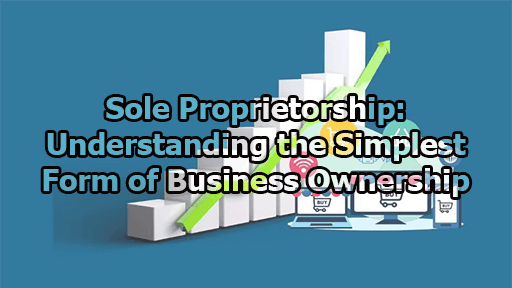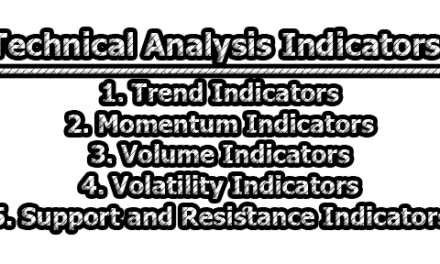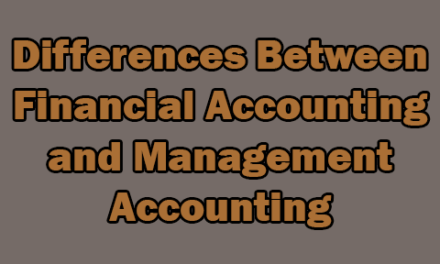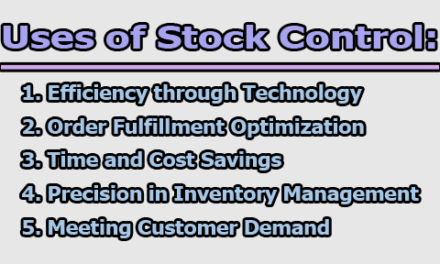Sole Proprietorship:
When it comes to business structures, the sole proprietorship stands out as the simplest and most straightforward option. It’s especially appealing for individuals looking to start a business with minimal administrative hassle and cost. Essentially, a sole proprietorship is an unincorporated business owned and operated by one person. There’s no legal distinction between the owner and the business entity, making it a popular choice for many entrepreneurs, especially those just starting out.
Characteristics of a Sole Proprietorship:
A sole proprietorship is defined by several key characteristics:
- Single Ownership: The business is owned and operated by one individual. This person is responsible for all aspects of the business and enjoys all profits.
- No Legal Distinction: There’s no separation between the business and the owner. The owner’s personal assets and liabilities are intertwined with the business’s assets and liabilities.
- Simplicity and Flexibility: Setting up a sole proprietorship is straightforward, typically involving minimal paperwork and regulatory compliance.
- Direct Control: The owner has complete control over all business decisions, allowing for quick and decisive management.
- Profits and Losses: All profits go directly to the owner, and the owner is also personally responsible for any losses.
Benefits of a Sole Proprietorship:
Many entrepreneurs find sole proprietorships attractive due to several key benefits:
- Ease of Formation: Starting a sole proprietorship is simple and inexpensive. Often, it just involves registering the business name and obtaining necessary permits or licenses.
- Complete Control: The owner has total authority over business decisions, enabling more direct and agile management.
- Tax Benefits: Sole proprietors enjoy pass-through taxation, meaning business income is reported on the owner’s personal tax return, potentially simplifying tax filing and reducing tax burdens.
- Minimal Regulatory Burden: Compared to corporations or partnerships, sole proprietorships face fewer regulatory requirements, saving time and money.
- Personal Satisfaction: Running a business independently can be personally fulfilling, offering a sense of achievement and direct reward for effort.
Drawbacks of a Sole Proprietorship:
However, the sole proprietorship has its downsides:
- Unlimited Liability: The owner is personally liable for all business debts and obligations, risking personal assets if the business faces financial difficulties.
- Limited Funding Options: It can be challenging to secure financing since sole proprietors cannot sell equity in the business and may have limited collateral.
- Longevity and Continuity Issues: The business is tied to the owner’s lifespan. If the owner retires, becomes incapacitated, or dies, the business may cease to exist.
- Operational Constraints: Being the sole decision-maker can be overwhelming and may lead to operational inefficiencies.
- Perceived Lack of Professionalism: Some customers, suppliers, and potential investors might view sole proprietorships as less professional or stable compared to other business structures.
Legal Implications of a Sole Proprietorship:
Understanding the legal framework is crucial for mitigating risks and ensuring compliance:
- Registration Requirements: While forming a sole proprietorship is straightforward, owners must comply with local regulations, such as registering the business name and obtaining necessary licenses or permits.
- Zoning Laws: Depending on the business type and location, zoning laws may restrict where certain businesses can operate.
- Employment Laws: If the sole proprietor hires employees, they must adhere to employment laws, including wage and hour laws, tax withholding, and workers’ compensation requirements.
- Contracts and Agreements: Sole proprietors must ensure that business contracts and agreements are legally sound and protect their interests.
- Insurance: Given the personal liability risk, obtaining appropriate business insurance is vital to protect personal and business assets.
Tax Considerations for Sole Proprietorships:
Taxation is a critical aspect of running a sole proprietorship:
- Pass-Through Taxation: Business income is reported on the owner’s personal tax return, typically using Schedule C to report profit or loss.
- Self-Employment Tax: Sole proprietors must pay self-employment tax, which covers Social Security and Medicare taxes.
- Estimated Taxes: Sole proprietors often need to make quarterly estimated tax payments to cover income and self-employment taxes.
- Business Deductions: Owners can deduct business expenses, such as supplies, equipment, travel, and home office expenses, reducing taxable income.
- Retirement Plans: Sole proprietors can establish retirement plans like a Simplified Employee Pension (SEP) IRA or a Solo 401(k), providing tax-advantaged retirement savings options.
Role of Sole Proprietorship in the Modern Business Landscape:
Sole proprietorships play a significant role in today’s economy:
- Small Business Dominance: In many countries, sole proprietorships make up the majority of small businesses, driving local economies and employment.
- Gig Economy: The rise of the gig economy has led to an increase in sole proprietorships, as individuals capitalize on flexible, project-based work.
- Technological Advancements: Technology has lowered barriers to entry, enabling sole proprietors to compete effectively in various industries.
- Entrepreneurial Ecosystem: Sole proprietorships often serve as the starting point for entrepreneurs, providing a testing ground for business ideas before potentially evolving into more complex structures.
- Resilience and Adaptability: The simplicity and flexibility of sole proprietorships allow them to adapt quickly to market changes and economic challenges.
In conclusion, sole proprietorships remain a cornerstone of entrepreneurial activity, offering an accessible and straightforward path to business ownership. Their simplicity, direct control, and minimal regulatory burden make them an attractive option for many aspiring business owners. However, the inherent risks of unlimited liability and funding challenges necessitate careful planning and management.
Understanding the legal, tax, and operational implications of a sole proprietorship is essential for maximizing its benefits and mitigating potential drawbacks. As the business landscape continues to evolve, the role of sole proprietorships will remain vital, fostering innovation, economic growth, and individual entrepreneurial spirit.
While a sole proprietorship may not be suitable for every business endeavor, it provides a valuable framework for those seeking to turn their entrepreneurial dreams into reality with minimal initial complexity. For many, it is the first step on a journey toward business success and personal fulfillment.

Library Lecturer at Nurul Amin Degree College










